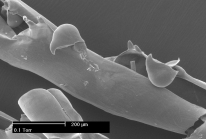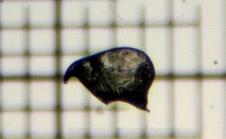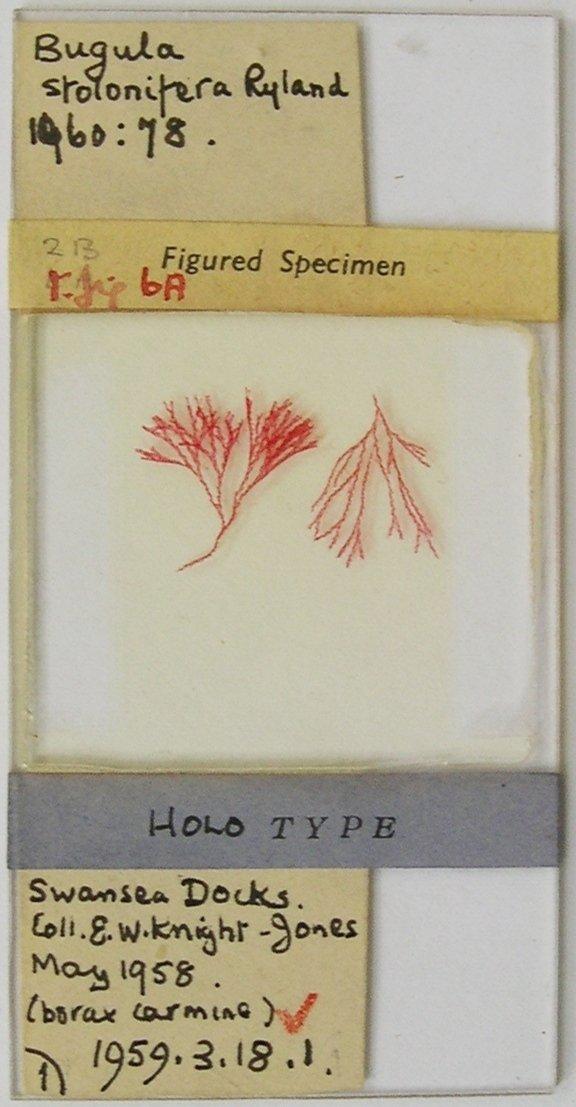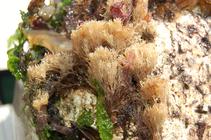WoRMS name details
Bugula stolonifera Ryland, 1960
111164 (urn:lsid:marinespecies.org:taxname:111164)
unaccepted
Species
marine, brackish, fresh, terrestrial
Ryland, J. S. (1960). The British species of Bugula (Polyzoa). <em>Proceedings of the Zoological Society of London.</em> 134(1): 65-104., available online at https://www.researchgate.net/publication/229967152_THE_BRITISH_SPECIES_OF_BUGULA_%28POLYZOA%29 [details] Available for editors  [request]
[request]
Bock, P. (2024). World List of Bryozoa. Bugula stolonifera Ryland, 1960. Accessed through: World Register of Marine Species at: https://www.marinespecies.org/aphia.php?p=taxdetails&id=111164 on 2024-11-01
Date
action
by
![]() The webpage text is licensed under a Creative Commons Attribution 4.0 License
The webpage text is licensed under a Creative Commons Attribution 4.0 License
original description
Ryland, J. S. (1960). The British species of Bugula (Polyzoa). <em>Proceedings of the Zoological Society of London.</em> 134(1): 65-104., available online at https://www.researchgate.net/publication/229967152_THE_BRITISH_SPECIES_OF_BUGULA_%28POLYZOA%29 [details] Available for editors  [request]
[request]
context source (Introduced species) Katsanevakis, S.; Bogucarskis, K.; Gatto, F.; Vandekerkhove, J.; Deriu, I.; Cardoso A.S. (2012). Building the European Alien Species Information Network (EASIN): a novel approach for the exploration of distributed alien species data. <em>BioInvasions Records.</em> 1: 235-245., available online at http://easin.jrc.ec.europa.eu [details] Available for editors [request]
[request]
context source (Deepsea) Denisenko N.V. (2014). Deep-sea fauna of European seas: An annotated species check-list of benthic invertebrates living deeper than 2000 m in the seas bordering Europe. Bryozoa. <i>Invertebrate Zoology</i>. Vol.11. No.1: 89–98 [in English]. [details] Available for editors [request]
[request]
context source (HKRMS) Huang ZG., Li ZY., Morton B. & Leung TY. (2000). Biofouling of cage mariculture zones in the southern waters of Hong Kong. In: Morton B, editor. Asian Marine Biology 16. Hong Kong University Press, Hong Kong. pp 77-99. [details]
context source (Schelde) (2010). Bedreiging voor biodiversiteit. Indicatoren voor het Schelde-estuarium. <em>Opgemaakt in opdracht van Afdeling Maritieme Toegang, projectgroep EcoWaMorSe, Vlaams Nederlandse Scheldecommissie. VLIZ Information Sheets, 200. Vlaams Instituut voor de Zee (VLIZ): Oostende.</em> 7 pp. (look up in IMIS) [details]
basis of record Hayward, P.J. (2001). Bryozoa, <B><I>in</I></B>: Costello, M.J. <i>et al.</i> (Ed.) (2001). <i>European register of marine species: a check-list of the marine species in Europe and a bibliography of guides to their identification. Collection Patrimoines Naturels,</i> 50: pp. 325-333 (look up in IMIS) [details]
additional source Muller, Y. (2004). Faune et flore du littoral du Nord, du Pas-de-Calais et de la Belgique: inventaire. [Coastal fauna and flora of the Nord, Pas-de-Calais and Belgium: inventory]. <em>Commission Régionale de Biologie Région Nord Pas-de-Calais: France.</em> 307 pp., available online at http://www.vliz.be/imisdocs/publications/145561.pdf [details]
additional source Gordon, D. P.; Taylor, P. D.; Bigey, F. P. (2009). Phylum Bryozoa: moss animals, sea mats, lace corals. <em>in: Gordon, D.P. (Ed.) (2009). New Zealand inventory of biodiversity: 1. Kingdom Animalia: Radiata, Lophotrochozoa, Deuterostomia.</em> pp. 271-297. [details]
additional source Winston, J. E. and F. J. Maturo Jr. 2009. Bryozoans (Ectoprocta) of the Gulf of Mexico, Pp. 1147–1164 in Felder, D.L. and D.K. Camp (eds.), Gulf of Mexico–Origins, Waters, and Biota. Biodiversity. Texas A&M Press, College Station, Texas. [details]
additional source Liu, J.Y. [Ruiyu] (ed.). (2008). Checklist of marine biota of China seas. <em>China Science Press.</em> 1267 pp. (look up in IMIS) [details] Available for editors [request]
[request]
additional source Lutaenko, K.A.; Furota, T.; Nakayama; S.; Shin, K.; Xu, J. (2013). Atlas of Marine Invasive Species in the NOWPAP Region. Beijing: NOWPAP DINRAC (Northwest Pacific Action Plan, Data and Information Network Regional Center). 189 pp. [details]
additional source Hayward, P.J. & J.S. Ryland (Eds.). (1990). The marine fauna of the British Isles and North-West Europe: 1. Introduction and protozoans to arthropods. <em>Clarendon Press: Oxford, UK.</em> 627 pp. (look up in IMIS) [details] Available for editors [request]
[request]
context source (Introduced species) Katsanevakis, S.; Bogucarskis, K.; Gatto, F.; Vandekerkhove, J.; Deriu, I.; Cardoso A.S. (2012). Building the European Alien Species Information Network (EASIN): a novel approach for the exploration of distributed alien species data. <em>BioInvasions Records.</em> 1: 235-245., available online at http://easin.jrc.ec.europa.eu [details] Available for editors
context source (Deepsea) Denisenko N.V. (2014). Deep-sea fauna of European seas: An annotated species check-list of benthic invertebrates living deeper than 2000 m in the seas bordering Europe. Bryozoa. <i>Invertebrate Zoology</i>. Vol.11. No.1: 89–98 [in English]. [details] Available for editors
context source (HKRMS) Huang ZG., Li ZY., Morton B. & Leung TY. (2000). Biofouling of cage mariculture zones in the southern waters of Hong Kong. In: Morton B, editor. Asian Marine Biology 16. Hong Kong University Press, Hong Kong. pp 77-99. [details]
context source (Schelde) (2010). Bedreiging voor biodiversiteit. Indicatoren voor het Schelde-estuarium. <em>Opgemaakt in opdracht van Afdeling Maritieme Toegang, projectgroep EcoWaMorSe, Vlaams Nederlandse Scheldecommissie. VLIZ Information Sheets, 200. Vlaams Instituut voor de Zee (VLIZ): Oostende.</em> 7 pp. (look up in IMIS) [details]
basis of record Hayward, P.J. (2001). Bryozoa, <B><I>in</I></B>: Costello, M.J. <i>et al.</i> (Ed.) (2001). <i>European register of marine species: a check-list of the marine species in Europe and a bibliography of guides to their identification. Collection Patrimoines Naturels,</i> 50: pp. 325-333 (look up in IMIS) [details]
additional source Muller, Y. (2004). Faune et flore du littoral du Nord, du Pas-de-Calais et de la Belgique: inventaire. [Coastal fauna and flora of the Nord, Pas-de-Calais and Belgium: inventory]. <em>Commission Régionale de Biologie Région Nord Pas-de-Calais: France.</em> 307 pp., available online at http://www.vliz.be/imisdocs/publications/145561.pdf [details]
additional source Gordon, D. P.; Taylor, P. D.; Bigey, F. P. (2009). Phylum Bryozoa: moss animals, sea mats, lace corals. <em>in: Gordon, D.P. (Ed.) (2009). New Zealand inventory of biodiversity: 1. Kingdom Animalia: Radiata, Lophotrochozoa, Deuterostomia.</em> pp. 271-297. [details]
additional source Winston, J. E. and F. J. Maturo Jr. 2009. Bryozoans (Ectoprocta) of the Gulf of Mexico, Pp. 1147–1164 in Felder, D.L. and D.K. Camp (eds.), Gulf of Mexico–Origins, Waters, and Biota. Biodiversity. Texas A&M Press, College Station, Texas. [details]
additional source Liu, J.Y. [Ruiyu] (ed.). (2008). Checklist of marine biota of China seas. <em>China Science Press.</em> 1267 pp. (look up in IMIS) [details] Available for editors
additional source Lutaenko, K.A.; Furota, T.; Nakayama; S.; Shin, K.; Xu, J. (2013). Atlas of Marine Invasive Species in the NOWPAP Region. Beijing: NOWPAP DINRAC (Northwest Pacific Action Plan, Data and Information Network Regional Center). 189 pp. [details]
additional source Hayward, P.J. & J.S. Ryland (Eds.). (1990). The marine fauna of the British Isles and North-West Europe: 1. Introduction and protozoans to arthropods. <em>Clarendon Press: Oxford, UK.</em> 627 pp. (look up in IMIS) [details] Available for editors
 Present
Present  Present in aphia/obis/gbif/idigbio
Present in aphia/obis/gbif/idigbio  Inaccurate
Inaccurate  Introduced: alien
Introduced: alien  Containing type locality
Containing type locality
From regional or thematic species database
Introduced species remark In Argentina (Nation) : No impacts have been reported for this species throughout its global range. [details]Introduced species remark In New Zealand (Nation) : No impacts have been reported for this species throughout its global range. [details]
Introduced species remark In Arabian Sea (IHO Sea Area) : No impacts have been reported for this species throughout its global range. [details]
Introduced species remark in Belgian part of the North Sea : No impacts have been reported for this species throughout its global range. [details]
Introduced species remark In Brazil (Nation) : No impacts have been reported for this species throughout its global range. [details]
Introduced species remark In China (Nation) : No impacts have been reported for this species throughout its global range. [details]
Introduced species remark In French part of the Mediterranean Sea - Western Basin (Marine Region) : No impacts have been reported for this species throughout its global range. [details]
Introduced species remark In Ghana (Nation) : No impacts have been reported for this species throughout its global range. [details]
Introduced species remark In India (Nation) : No impacts have been reported for this species throughout its global range. [details]
Introduced species remark In Mediterranean Sea - Western Basin (IHO Sea Area) : No impacts have been reported for this species throughout its global range. [details]
Introduced species remark In Dutch part of the North Sea : No impacts have been reported for this species throughout its global range. [details]
Introduced species remark In Portugal (Nation) : No impacts have been reported for this species throughout its global range. [details]
Introduced species remark In Russia (Nation) : No impacts have been reported for this species throughout its global range. [details]
Introduced species remark In Turkish part of the Aegean Sea (Marine Region) : No impacts have been reported for this species throughout its global range. [details]
Introduced species remark In United Kingdom Exclusive Economic Zone (EEZ) : No impacts have been reported for this species throughout its global range. [details]
Introduced species vector dispersal in United Kingdom part of the Celtic Sea (Marine Region) : Ships: general [details]
Introduced species vector dispersal Argentinean part of the South Atlantic Ocean (Marine Region) Ships: accidental as attached or free-living fouling organisms [details]
Introduced species vector dispersal Madeiran part of the North Atlantic Ocean (Marine Region) Ships: accidental as attached or free-living fouling organisms [details]
Unreviewed
Alien species The origin of Bugula stolonifera is unknown. The species is known worldwide as an exotic species and found on ship hulls. The first European observation dates from 1960 in Great Britain. The species was first observed in Belgium in the Ostend Sluice dock in 1976. It later emerged in the harbours of Ostend and Zeebrugge, and on the groynes of Koksijde. It appears to be resistant to low and changing salinity levels and pollution, whereby it can flourish in harbours. [details]
To Barcode of Life (4 barcodes)
To Biodiversity Heritage Library (14 publications)
To GenBank (624 nucleotides; 8 proteins)
To Information system on Aquatic Non-Indigenous and Cryptogenic Species (AquaNIS)
To NHMUK collection (Bugula stolonifera Ryland, 1960; HOLOTYPE; NHMUK:ecatalogue:558700)
To Niet-inheemse soorten Belgisch deel Noordzee en aanpalende estuaria (in Dutch)
To PESI
To USNM Invertebrate Zoology Bryozoa Collection (8 records)
To ITIS
To Biodiversity Heritage Library (14 publications)
To GenBank (624 nucleotides; 8 proteins)
To Information system on Aquatic Non-Indigenous and Cryptogenic Species (AquaNIS)
To NHMUK collection (Bugula stolonifera Ryland, 1960; HOLOTYPE; NHMUK:ecatalogue:558700)
To Niet-inheemse soorten Belgisch deel Noordzee en aanpalende estuaria (in Dutch)
To PESI
To USNM Invertebrate Zoology Bryozoa Collection (8 records)
To ITIS










